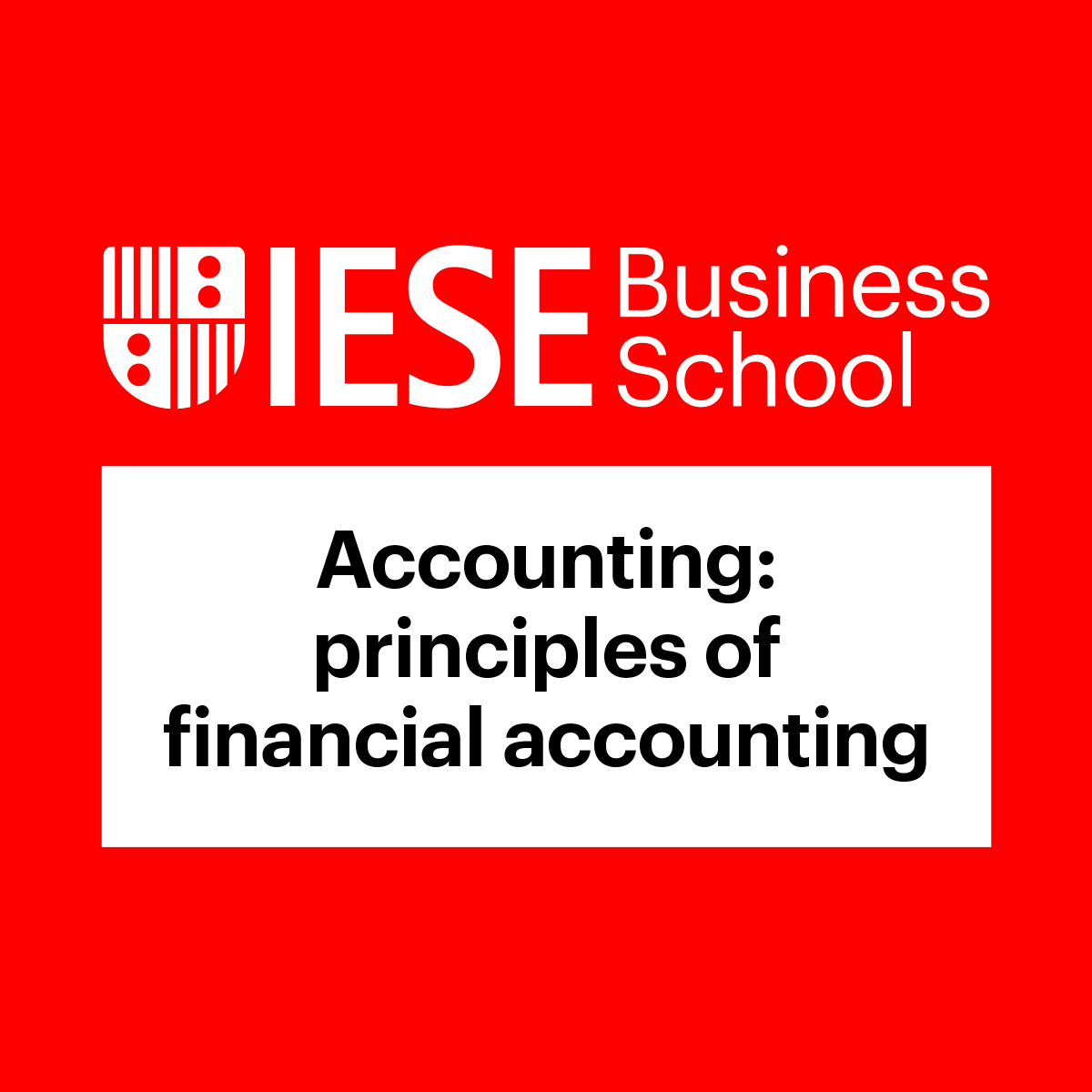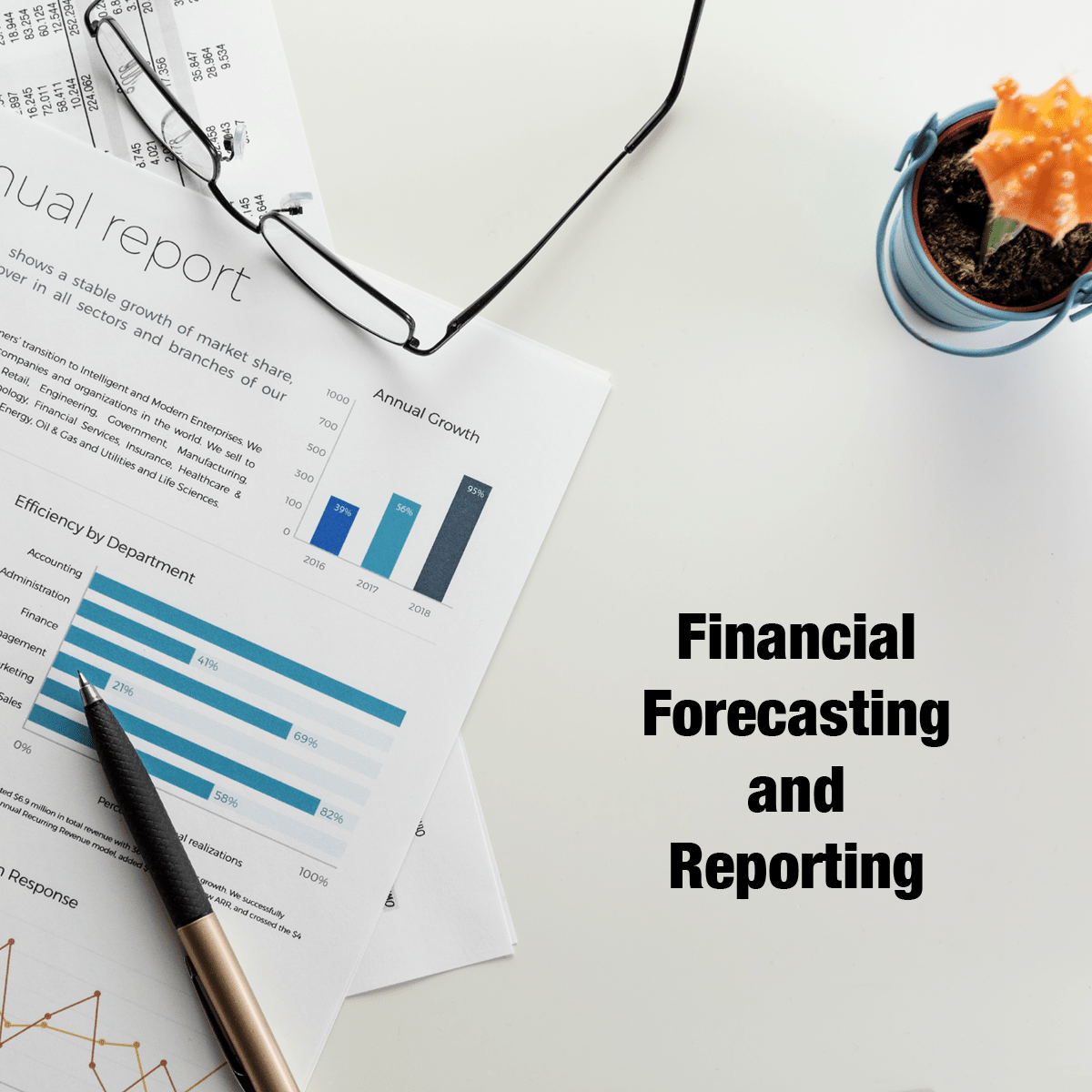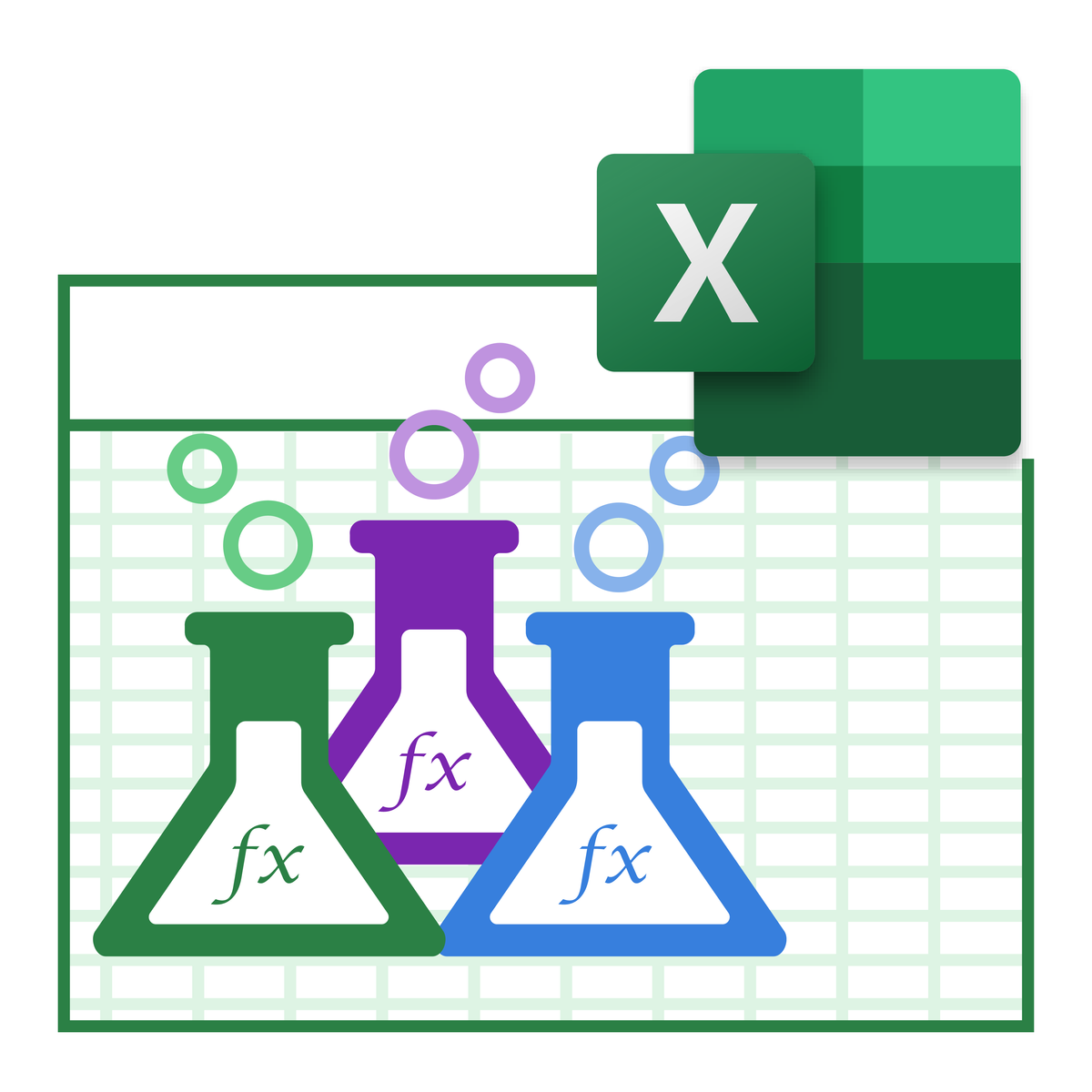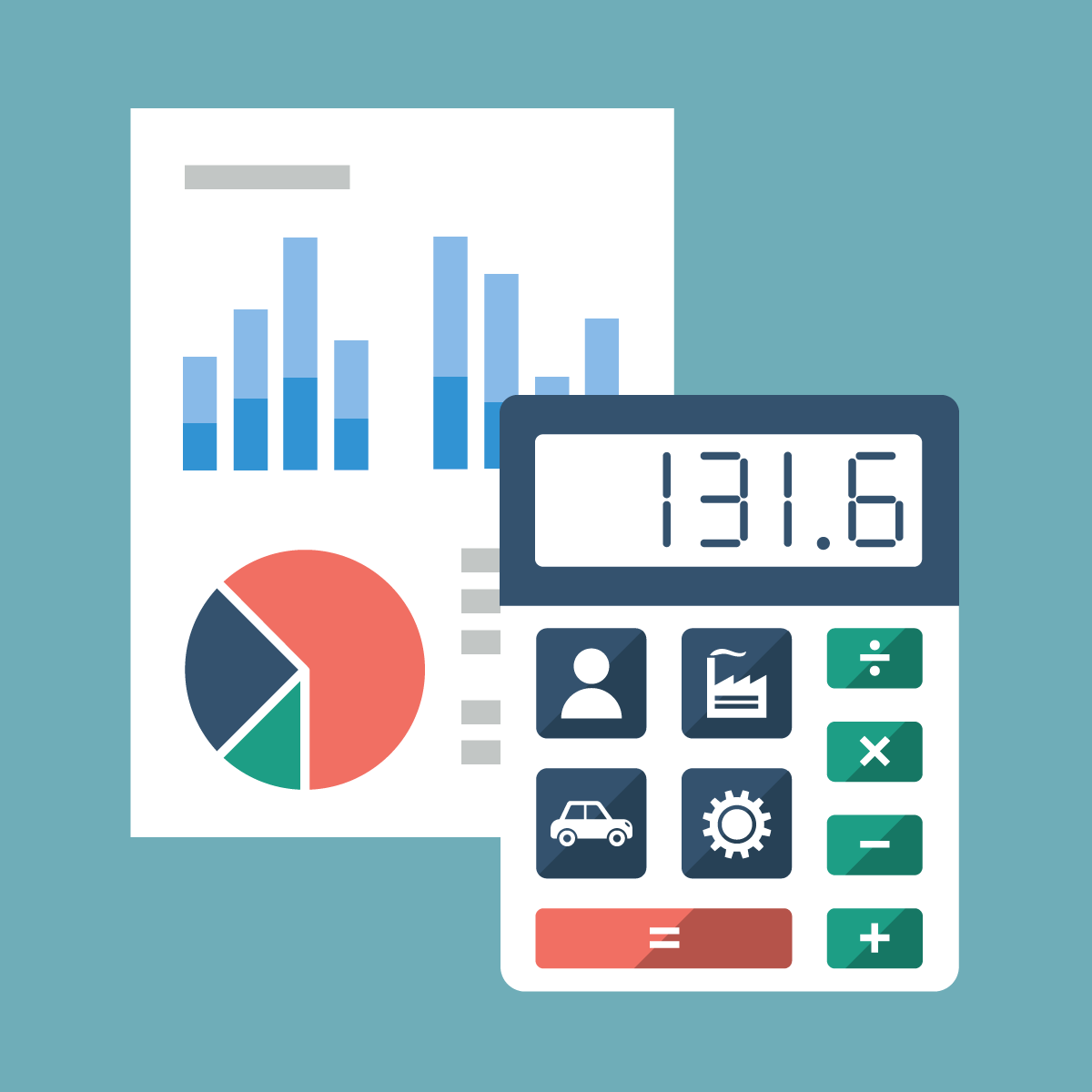Cost Accountant
Cost Accountant: A Comprehensive Career Guide
Cost accounting is a specialized field within accounting focused on tracking, analyzing, and reporting a company's costs related to production and operations. Unlike financial accounting, which primarily serves external stakeholders like investors and creditors with historical financial statements, cost accounting provides detailed cost information to internal management. This information is crucial for planning, controlling operations, and making informed business decisions to improve efficiency and profitability.
Working as a Cost Accountant offers intellectually stimulating challenges. You'll delve deep into the operational heart of a business, figuring out the true cost of producing goods or delivering services. This role often involves detective work, analyzing variances between expected and actual costs, and collaborating closely with production, engineering, and sales teams. The insights you provide directly influence pricing strategies, budget allocations, and decisions about product lines, making it a role with tangible impact.
Overview of Cost Accounting
This section provides a foundational understanding of cost accounting, setting the stage for exploring the career path.
What is Cost Accounting?
Cost accounting involves the systematic recording and analysis of the costs incurred by a business. Its primary goal is to help management understand the costs of running the business, specifically related to producing goods or services. By identifying and measuring costs accurately, companies can make better decisions about resource allocation, pricing, and operational efficiency.
The core objectives include determining the cost of products or services, aiding in planning and controlling costs, providing data for decision-making (like make-or-buy decisions), and evaluating performance. Cost accountants meticulously track direct costs (like materials and labor) and allocate indirect costs (overhead) to specific products, departments, or activities.
Understanding cost behavior—how costs change with activity levels—is fundamental. This knowledge helps in budgeting, forecasting, and determining break-even points, ultimately guiding the company toward greater profitability and sustainability.
Cost Accounting vs. Financial Accounting
While both cost accounting and financial accounting deal with a company's financial data, they serve different purposes and audiences. Financial accounting focuses on summarizing historical financial transactions to create financial statements (like the balance sheet and income statement) for external users such as investors, lenders, and regulators. It adheres strictly to standardized principles like GAAP or IFRS.
Cost accounting, conversely, is geared towards internal management. It provides detailed, often forward-looking information tailored to specific managerial needs. Its reports are more flexible in format and frequency and don't necessarily need to follow GAAP. The goal is operational efficiency and strategic decision-making, such as setting prices, controlling spending, and evaluating project profitability.
Think of financial accounting as looking in the rearview mirror, reporting where the company has been. Cost accounting is like using the dashboard and GPS, providing real-time data and projections to navigate the road ahead effectively.
To gain a solid grasp of accounting principles, including those relevant to both financial and cost accounting, exploring foundational courses can be beneficial.
A Brief History
Cost accounting emerged during the Industrial Revolution as manufacturing processes grew more complex. Early factory owners needed ways to track the costs of materials, labor, and overhead to price their goods competitively and manage production efficiently. Initially simple, methods evolved to handle increasingly intricate operations.
The 20th century saw significant developments, including standard costing, variance analysis, and activity-based costing (ABC). These techniques provided more sophisticated ways to allocate overhead costs and analyze performance deviations. The rise of computers later revolutionized the field, enabling faster processing of vast amounts of data and more complex analyses.
Today, cost accounting continues to adapt, incorporating advanced data analytics, automation, and considerations for factors like sustainability and global supply chains. It remains a vital function for businesses seeking a competitive edge through cost management and strategic insight.
Where Cost Accountants Work
Cost accountants are essential in industries where understanding production and operational costs is critical. Manufacturing is a primary sector, where they track the costs of raw materials, labor, and factory overhead to determine product costs accurately. This information guides pricing, inventory valuation, and production decisions.
The service sector also employs cost accountants, although the focus shifts. In healthcare, they analyze the costs of procedures and patient care to manage expenses and negotiate insurance reimbursements. Construction companies use cost accountants for project-based costing, tracking expenses for specific builds. Retailers analyze costs related to inventory, logistics, and store operations.
Government agencies and non-profits also utilize cost accounting principles for budgeting and resource allocation. Essentially, any organization concerned with managing expenses and optimizing operational efficiency can benefit from the expertise of a cost accountant.
Key Responsibilities of a Cost Accountant
This section details the typical duties and functions performed by cost accountants in their day-to-day work.
Analyzing Costs and Reporting Variances
A core function of cost accounting is analyzing the various costs incurred by the business. This involves classifying costs (direct vs. indirect, fixed vs. variable), assigning them to cost objects (products, services, departments), and comparing actual costs against budgeted or standard costs.
Variance analysis is a critical part of this. Cost accountants investigate discrepancies between expected and actual results, identifying the root causes of differences in material prices, labor efficiency, or overhead spending. For example, an unfavorable material variance might indicate rising supplier prices or excessive waste in production.
Reporting these findings clearly and concisely to management is crucial. These reports highlight areas of concern, potential inefficiencies, and opportunities for cost reduction, enabling managers to take corrective actions promptly.
Understanding variance analysis is key. These courses offer insights into standard costs and variance calculations.
Budgeting and Forecasting
Cost accountants play a significant role in the budgeting and forecasting processes. They provide detailed cost data that forms the basis for creating realistic departmental and company-wide budgets. This involves estimating future costs for materials, labor, and overhead based on historical data, anticipated production volumes, and expected changes in the business environment.
Forecasting involves predicting future financial outcomes based on current trends and assumptions. Cost accountants use their understanding of cost behavior and operational drivers to develop financial projections. These forecasts help management anticipate future performance, plan for resource needs, and make strategic adjustments.
Accurate budgeting and forecasting rely heavily on robust cost information. Cost accountants ensure the underlying data is sound, helping the organization set achievable financial targets and navigate future uncertainties.
These resources delve into budgeting, forecasting, and the managerial use of accounting information.
Managing Inventory Valuation
Inventory often represents a significant asset for manufacturing and retail companies, and its valuation directly impacts the balance sheet and income statement. Cost accountants are responsible for implementing and managing inventory costing methods, such as First-In, First-Out (FIFO), Last-In, First-Out (LIFO), or weighted-average cost.
The chosen method affects the reported cost of goods sold (COGS) and the value of remaining inventory. Cost accountants ensure that inventory is valued accurately and consistently according to accounting standards and company policy. They also analyze inventory turnover rates, identify slow-moving or obsolete stock, and contribute to decisions about inventory levels.
Proper inventory management and valuation are crucial for financial reporting accuracy and operational efficiency. Cost accountants provide the necessary oversight and analysis in this critical area.
Learn more about inventory accounting and management through these selected courses and books.
Collaborating Across Departments
Cost accountants rarely work in isolation. Their role requires extensive collaboration with various departments across the organization. They partner with operations and production teams to understand manufacturing processes, gather data on resource consumption, and identify areas for efficiency improvements.
They also work closely with the engineering department on product design costs and with the sales and marketing teams to provide cost information for pricing decisions. Interaction with the finance department is constant, ensuring alignment between cost accounting data and overall financial reporting.
Effective communication and interpersonal skills are essential for building relationships and gathering the necessary information from different parts of the business. This cross-functional collaboration ensures that cost data is accurate, relevant, and effectively used throughout the organization.
Formal Education Pathways
Aspiring cost accountants typically follow specific educational routes to gain the necessary knowledge and credentials.
Undergraduate Degrees
A bachelor's degree is generally the minimum educational requirement for entry-level cost accounting positions. Degrees in Accounting or Finance are the most common and relevant pathways. These programs provide a strong foundation in accounting principles, financial reporting, taxation, auditing, and business law.
Coursework often includes specific classes in cost accounting, managerial accounting, and intermediate accounting, which are directly applicable to the role. Strong quantitative skills and analytical abilities are developed through these programs. Some students might also pursue degrees in business administration with a concentration in accounting.
Internships during undergraduate studies are highly valuable. They provide practical experience, exposure to real-world accounting systems, and networking opportunities within the industry.
These introductory courses cover fundamental accounting concepts essential for any aspiring accountant.
Professional Certifications (CMA, CPA)
While not always mandatory for entry-level roles, professional certifications significantly enhance career prospects and earning potential for cost accountants. The Certified Management Accountant (CMA) designation, offered by the Institute of Management Accountants (IMA), is particularly relevant as it focuses specifically on management accounting and financial management skills.
The Certified Public Accountant (CPA) license is broader, covering financial accounting, auditing, regulation, and taxation. While highly respected, its focus is less specific to the internal decision-making aspects central to cost accounting. However, many cost accountants hold a CPA, especially those aiming for higher-level financial leadership roles.
Both certifications typically require a bachelor's degree, specific coursework, passing rigorous exams, and meeting professional experience requirements. Maintaining these credentials involves ongoing professional education. Information on requirements can often be found on the websites of governing bodies like the IMA or AICPA.
Graduate Studies and Research
For those seeking advanced knowledge, specialization, or careers in academia, pursuing a master's degree or Ph.D. can be beneficial. A Master of Accountancy (MAcc) or an MBA with an accounting concentration can provide deeper expertise in areas like cost management, forensic accounting, or information systems.
Graduate programs often delve into more complex cost accounting topics, strategic cost management, and performance measurement systems. They can prepare individuals for senior management roles or specialized consulting positions.
A Ph.D. in Accounting is typically pursued by those interested in academic research and teaching at the university level. Research opportunities in cost accounting might explore areas like the behavioral aspects of cost management, the design of performance measurement systems, or the impact of new technologies on costing practices.
These courses offer a deeper dive into managerial and intermediate accounting topics, suitable for those considering or pursuing advanced studies.
Essential Skills and Competencies
Success as a cost accountant requires a blend of technical expertise, analytical ability, and interpersonal skills.
Technical Proficiency
Strong technical skills are fundamental. Proficiency in spreadsheet software, particularly Microsoft Excel, is essential for data manipulation, analysis, and reporting. Cost accountants use Excel for tasks ranging from simple cost calculations to complex modeling and variance analysis.
Familiarity with Enterprise Resource Planning (ERP) systems, such as SAP or Oracle, is often required. These systems integrate various business functions, including finance and operations, and are the primary source of cost data. Specific modules related to costing (like SAP CO) are particularly relevant.
Increasingly, skills in data analytics tools and techniques are becoming important. The ability to extract, analyze, and visualize large datasets using tools beyond Excel can provide deeper insights into cost drivers and operational performance.
These courses focus on essential technical skills like Excel and specific ERP modules used in cost accounting.
Analytical and Critical Thinking
Cost accountants must possess strong analytical and critical thinking skills. They need to interpret complex financial data, identify trends, patterns, and anomalies. This involves not just crunching numbers but understanding the underlying business operations that generate those numbers.
Critical thinking is required to evaluate different costing methods, assess the validity of assumptions used in forecasting, and question variances to uncover root causes. They must be able to diagnose problems based on cost data and propose logical, data-driven solutions.
Problem-solving is a daily activity, whether it's reconciling discrepancies, improving cost allocation methods, or finding ways to reduce waste and inefficiency. The ability to think logically and systematically is paramount.
Developing analytical skills is crucial. Courses focusing on data-driven decision making can enhance these capabilities.
Communication and Soft Skills
Technical skills alone are not sufficient. Cost accountants need excellent communication skills to explain complex financial information clearly and concisely to non-financial managers and colleagues. They must present findings from cost analyses and variance reports in a way that is understandable and actionable.
Collaboration skills are vital, given the need to work closely with teams from operations, engineering, sales, and finance. Building rapport and effectively gathering information from diverse groups are key. Attention to detail is critical for ensuring the accuracy of cost data and reports.
Furthermore, adaptability and a willingness to learn are important, as business environments, technologies, and regulations change. Strong ethical judgment is also crucial when handling sensitive financial data and influencing business decisions.
Understanding Regulations and Frameworks
While cost accounting is primarily for internal use, it's still influenced by external regulations and accounting frameworks. Cost accountants need a solid understanding of Generally Accepted Accounting Principles (GAAP) or International Financial Reporting Standards (IFRS), particularly concerning inventory valuation and cost capitalization rules.
Industry-specific regulations can also impact costing practices. For example, government contractors may need to adhere to specific cost accounting standards (CAS). Understanding tax regulations related to inventory and cost of goods sold is also necessary.
Staying updated on changes in accounting standards and relevant regulations is part of the job, ensuring the company's costing practices remain compliant and accurate for both internal analysis and external reporting requirements where applicable.
Career Progression for Cost Accountants
A career in cost accounting offers various paths for growth and advancement, both within the specialization and into broader financial roles.
Starting the Journey: Entry-Level Roles
Most careers in cost accounting begin with entry-level positions such as Junior Cost Accountant, Cost Analyst, or Staff Accountant with a focus on costing. In these roles, individuals typically support senior accountants by gathering data, performing basic cost calculations, preparing journal entries related to inventory and production, and assisting with variance analysis.
These initial years are crucial for building a strong foundation in costing principles, learning the company's specific operations and systems (like ERP software), and developing analytical skills. Responsibilities gradually increase as experience and proficiency grow.
A bachelor's degree in accounting or a related field is typically required. Gaining practical experience through internships during studies can be a significant advantage when seeking these first positions.
Foundational knowledge is key. These courses cover basics relevant for starting a career in accounting.
Moving Up: Mid-Career Advancement
With several years of experience and demonstrated competence, cost accountants can advance to roles like Senior Cost Accountant or Cost Accounting Manager. At this level, responsibilities often include overseeing the work of junior staff, managing the month-end closing process related to costing, developing more complex cost models, and taking a lead role in budgeting and forecasting.
Senior roles require deeper analytical skills, a thorough understanding of the business's operations, and the ability to provide strategic insights based on cost data. Obtaining professional certifications like the CMA or CPA often facilitates advancement to these positions.
Individuals may also specialize further, perhaps focusing on product line profitability analysis, supply chain costing, or implementing new costing methodologies like Activity-Based Costing.
Intermediate and advanced courses help build the expertise needed for mid-career roles.
Reaching the Top: Leadership Pathways
Experienced cost accounting professionals can progress into significant leadership positions within the finance function. Roles such as Financial Controller, Director of Finance, or even Chief Financial Officer (CFO) are potential pathways, particularly in manufacturing or operations-heavy organizations where cost management is paramount.
These leadership roles involve overseeing broader financial functions beyond just costing, including financial reporting, treasury, and strategic financial planning. A strong background in cost accounting provides an excellent foundation for understanding the operational drivers of financial performance, which is invaluable at the executive level.
Significant experience, strong leadership abilities, strategic thinking, and often advanced degrees or certifications are typically required for these top-tier positions.
Exploring Alternatives: Lateral Moves
The skills developed as a cost accountant are transferable to various related fields. Experienced professionals may transition into roles in general financial analysis, supply chain management, operations management, or management consulting.
A deep understanding of costs and operational efficiency makes cost accountants valuable candidates for roles focused on process improvement, profitability analysis, or strategic planning. Some may move into roles involving ERP system implementation or financial planning and analysis (FP&A).
The analytical rigor, business acumen, and cross-functional collaboration experience gained in cost accounting open doors to diverse career opportunities both within and outside the traditional finance department.
Industry Applications and Specializations
Cost accounting principles are applied differently across various industries, leading to specialized practices and areas of focus.
Manufacturing vs. Service Sectors
In the manufacturing sector, cost accounting heavily focuses on product costing. This involves tracking direct materials, direct labor, and allocating manufacturing overhead to determine the cost of finished goods. Techniques like job costing (for unique products) and process costing (for mass production) are common. Inventory valuation is also a major concern.
In the service sector, the focus shifts from tangible products to the cost of delivering services. Cost objects might be projects, clients, or service lines. Allocating labor costs accurately is often critical, as labor is usually the largest expense. Overhead allocation methods might need adaptation, as traditional manufacturing drivers (like machine hours) may not be relevant.
While the fundamental principles remain the same, the application and specific techniques used in cost accounting can vary significantly depending on whether the organization produces goods or provides services.
These resources cover cost accounting fundamentals applicable across sectors.
Specialized Costing Approaches
Certain industries rely on specialized costing methods. Project-based costing is essential in industries like construction, consulting, and software development, where costs need to be tracked and managed for individual projects over their lifecycles. This involves accumulating costs specific to each project and monitoring progress against budget.
Healthcare organizations face unique challenges in costing medical procedures, patient stays, and managing costs across different departments (like labs, pharmacy, surgery). Accurate costing is vital for pricing services, negotiating with insurers, and ensuring financial viability. Strategies focus on cost containment while maintaining quality of care.
Activity-Based Costing (ABC) is another specialized approach used across various industries. It allocates overhead costs based on specific activities that drive those costs, often providing a more accurate picture of product or service profitability than traditional methods.
Emerging Areas: Sustainability and Beyond
Cost accounting is evolving to encompass new areas of focus. Sustainability accounting, or environmental accounting, is a growing field. It involves tracking and reporting the environmental costs associated with a company's operations, such as pollution control, waste disposal, and resource consumption.
This information helps companies manage their environmental impact, comply with regulations, and meet stakeholder demands for greater transparency. Integrating environmental costs into product costing and investment decisions is becoming increasingly important.
Other emerging areas include accounting for data as an asset and adapting costing methods for agile development environments and digital business models. Cost accountants need to stay abreast of these developments to remain relevant.
Technological Impact on Cost Accounting
Technology is rapidly transforming the field of cost accounting, automating tasks, enabling deeper analysis, and presenting new challenges.
Automation and Artificial Intelligence
Automation technologies, including Robotic Process Automation (RPA) and Artificial Intelligence (AI), are increasingly handling routine and repetitive cost accounting tasks. Data entry, reconciliations, and basic report generation can often be automated, freeing up cost accountants' time.
This shift allows professionals to focus on higher-value activities, such as complex analysis, strategic interpretation of data, and collaborating with management on decision-making. AI can also assist in identifying patterns and anomalies in cost data that might be missed by human analysis alone.
While automation changes the nature of the work, it doesn't eliminate the need for cost accountants. Instead, it requires them to develop new skills in data analysis, interpretation, and strategic thinking.
Advanced Analytics and Predictive Costing
The availability of vast amounts of data ("Big Data") combined with powerful analytical tools allows for more sophisticated cost analysis. Advanced analytics techniques can uncover hidden cost drivers, optimize resource allocation, and improve the accuracy of forecasts.
Predictive costing uses historical data and statistical models to forecast future costs with greater precision. This helps businesses anticipate cost fluctuations, manage risks associated with input prices or demand changes, and make more proactive decisions.
Cost accountants increasingly need skills in data analytics software and methodologies to leverage these capabilities effectively, transforming cost data into actionable strategic intelligence.
Blockchain and Supply Chain Transparency
Blockchain technology holds potential for enhancing transparency and efficiency in supply chain cost tracking. By creating an immutable and shared ledger of transactions, blockchain can provide greater visibility into costs incurred at each stage of the supply chain, from raw material sourcing to final delivery.
This can improve accuracy in allocating costs, verifying supplier charges, and managing inter-company transactions. While still an emerging application, blockchain could significantly impact how costs are tracked and managed in complex global supply chains.
Understanding the potential applications and limitations of technologies like blockchain may become increasingly relevant for cost accountants, particularly those working in logistics and supply chain finance.
Data Ethics and Decision Making
As cost accounting becomes more data-driven and reliant on sophisticated algorithms, ethical considerations become increasingly important. Ensuring data privacy, security, and the unbiased application of analytical models is crucial.
Cost accountants must be mindful of how cost information is used in decision-making, ensuring fairness and transparency. For instance, cost allocation methods could inadvertently disadvantage certain departments or product lines if not carefully designed and reviewed.
Maintaining professional skepticism and ethical judgment in the face of complex data and automated systems is essential. The human element of interpretation, validation, and ethical oversight remains critical even in a technologically advanced environment.
Challenges and Risk Factors
The role of a cost accountant involves navigating various challenges and managing risks inherent in the modern business environment.
Globalization and Cost Structures
Operating in a globalized economy presents unique challenges for cost management. Multinational companies must deal with fluctuating exchange rates, varying labor costs and regulations across different countries, and complex international supply chains. Transfer pricing between different legal entities within the same company requires careful cost allocation.
Comparing costs across different regions and managing a global cost structure requires sophisticated systems and analysis. Cost accountants need to understand the implications of international trade, tariffs, and geopolitical factors on the company's costs.
Cross-cultural coordination and communication also become vital when working with teams and data from different parts of the world.
Cybersecurity and Data Integrity
Cost accountants work with sensitive financial and operational data, making data security a significant concern. Protecting cost information from unauthorized access, cyberattacks, and data breaches is crucial.
Ensuring the integrity and accuracy of the underlying data used for cost analysis is also a challenge. Errors in data input or processing can lead to flawed analysis and poor decision-making. Robust internal controls over financial systems and data handling processes are essential.
Cost accountants must be aware of cybersecurity risks and follow best practices for data protection, contributing to the overall security posture of the organization's financial information systems.
Balancing Accuracy and Timeliness
There is often a trade-off between the accuracy of cost information and the speed at which it can be delivered to management. While highly detailed and precise cost analysis is valuable, it can be time-consuming to produce.
Management often needs timely information to make quick operational decisions. Cost accountants must balance the need for rigorous accuracy with the demand for relevant information delivered promptly. This may involve using estimations or streamlined methods for certain types of analysis while ensuring critical figures are precise.
Developing efficient processes and utilizing technology effectively can help strike this balance, providing information that is both reliable enough and timely enough to be useful for decision-making.
Future Trends in Cost Accounting
The field of cost accounting is continuously evolving, influenced by broader business trends, technological advancements, and changing stakeholder expectations.
Integration with ESG Reporting
There is growing pressure on companies to report on their Environmental, Social, and Governance (ESG) performance. Cost accounting is increasingly integrating ESG factors, moving beyond traditional financial costs to measure and manage environmental impacts (like carbon emissions) and social costs.
This involves developing new metrics and methodologies to track sustainability-related costs and benefits. Cost accountants will play a key role in providing the data needed for integrated reporting, linking financial performance with ESG outcomes.
Understanding how to quantify and report on these non-traditional costs will be an important skill for future cost accountants.
Real-Time Costing and Agility
Businesses operating in dynamic and agile environments require more immediate insights into their costs. The trend is moving towards real-time or near-real-time costing systems, enabled by integrated ERP systems and advanced analytics.
This allows managers to monitor costs as they are incurred and react quickly to deviations or changing conditions. Traditional monthly or quarterly reporting cycles are becoming insufficient in fast-paced industries. Cost accountants need to adapt to providing more frequent, dynamic cost analysis.
This requires robust systems capable of processing data quickly and analytical tools that can provide immediate insights.
Role of Generative AI
Generative Artificial Intelligence (AI) has the potential to further transform cost accounting. AI could be used for advanced scenario modeling, simulating the cost implications of various strategic decisions or market changes with greater speed and complexity than previously possible.
It might also assist in automating the interpretation of cost data, drafting variance analysis reports, or even suggesting potential cost-saving initiatives based on pattern recognition. Cost accountants will need to learn how to work alongside these AI tools, leveraging their capabilities while providing critical oversight and validation.
The focus will likely shift further towards strategic interpretation and decision support, enabled by AI-driven insights.
Responding to Economic Volatility
Increased economic uncertainty and volatility place greater demands on cost management. Businesses need accurate and timely cost information to navigate inflation, supply chain disruptions, and shifts in consumer demand.
Cost accountants are crucial in helping organizations understand the impact of these external factors on their cost structure and profitability. Scenario planning, sensitivity analysis, and flexible budgeting become even more important tools in managing through turbulent economic times.
The ability to provide insightful analysis that supports agile decision-making in response to economic shifts will continue to be a key value proposition for cost accountants.
Frequently Asked Questions
This section addresses common questions individuals may have when considering a career as a cost accountant.
Is a professional certification (like CMA or CPA) required for entry-level roles?
Generally, professional certifications like the CMA or CPA are not strictly required for most entry-level cost accounting positions. A relevant bachelor's degree is usually the primary educational requirement. However, pursuing or having obtained a certification can significantly strengthen a candidate's profile and may be preferred by some employers.
Certifications become more important, and sometimes necessary, for career advancement into mid-level and senior management roles. They demonstrate a high level of expertise, commitment to the profession, and specialized knowledge relevant to cost and management accounting.
While not always mandatory at the start, planning to pursue a certification early in one's career is often a wise strategy for long-term growth in the field.
How does cost accounting differ from management accounting?
Cost accounting and management accounting are closely related and often overlap, with the terms sometimes used interchangeably. However, there's a subtle distinction. Cost accounting is primarily focused on determining the costs of products, processes, or services.
Management accounting has a broader scope. It uses cost accounting information, along with other financial and non-financial data, to support internal decision-making across various management functions. This includes planning, budgeting, performance evaluation, and strategic management.
Essentially, cost accounting provides a crucial input (detailed cost data) for the broader field of management accounting, which uses that data for analysis and decision support.
Which industries typically offer the highest salaries for cost accountants?
Salaries for cost accountants can vary based on industry, location, experience, education, and certifications. Generally, industries with complex manufacturing processes or large-scale operations tend to offer competitive salaries due to the critical nature of cost management.
Sectors like oil and gas, pharmaceuticals, technology manufacturing, and aerospace often provide higher compensation levels. Consulting firms that specialize in cost management or performance improvement also tend to offer attractive salaries.
However, factors like company size and profitability also play a significant role. Resources like the U.S. Bureau of Labor Statistics Occupational Outlook Handbook for accountants and auditors or salary surveys from recruitment firms like Robert Half can provide more specific salary data based on various factors.
Are remote work opportunities common for cost accountants?
The prevalence of remote work for cost accountants has increased, mirroring trends across many office-based professions. Many tasks, such as data analysis, report generation, and virtual collaboration, can be performed effectively from a remote location, especially with robust ERP systems and communication tools.
However, some aspects of the role, particularly those involving close collaboration with production or operations teams on-site or physical inventory observation, may require some physical presence. Hybrid models, combining remote work with occasional office or site visits, are becoming quite common.
The availability of fully remote positions depends on the specific company culture, the industry, and the exact nature of the role's responsibilities.
How vulnerable is the cost accountant role to automation?
Like many accounting functions, cost accounting is subject to automation, particularly for routine and data-intensive tasks. Standard cost calculations, variance report generation, and data entry are areas where automation (RPA, AI) is already having an impact.
However, automation is unlikely to eliminate the role entirely. Instead, it's shifting the focus towards higher-level skills: interpreting data, providing strategic insights, complex problem-solving, collaborating with other departments, and managing the costing systems themselves. Accountants who adapt by developing strong analytical, technological, and communication skills will remain in demand.
The future cost accountant will likely work alongside technology, leveraging automation to enhance their efficiency and focus on more strategic contributions to the business.
What are typical career transitions from cost accounting?
A background in cost accounting provides a strong foundation for various career transitions. Within finance and accounting, common moves include roles in financial planning and analysis (FP&A), general financial management (Controller, Finance Director), internal audit, or treasury.
The operational knowledge gained also facilitates moves into operations management, supply chain management, or process improvement roles (like Lean or Six Sigma). Some cost accountants leverage their analytical skills to transition into business analysis or data analytics positions.
Consulting, particularly in areas related to performance improvement, cost reduction, or ERP implementation, is another potential path. The specific opportunities often depend on individual interests, skills developed, and industry experience.
Helpful Resources
For those interested in further exploring cost accounting or related fields, here are some useful starting points:
- Institute of Management Accountants (IMA): The primary organization for management accountants, offering the CMA certification and extensive resources. Visit IMA
- American Institute of Certified Public Accountants (AICPA): The main body for CPAs in the US, providing resources and information on the CPA license. Visit AICPA
- OpenCourser - Business & Management: Explore a wide range of courses in accounting, finance, and business management. Browse Business Courses
- OpenCourser - Finance & Economics: Find specialized courses related to financial analysis, economics, and accounting principles. Browse Finance & Economics Courses
- OpenCourser Learner's Guide: Discover tips and strategies for maximizing your learning from online courses. Access the Learner's Guide
Embarking on a career as a Cost Accountant requires dedication to mastering technical skills and developing strong analytical abilities. It's a challenging yet rewarding path that places you at the intersection of finance and operations, offering opportunities to make a tangible impact on business performance. Whether you are just starting your educational journey, considering a career pivot, or looking to advance within the field, continuous learning and adaptation are key to success in this dynamic profession.


























